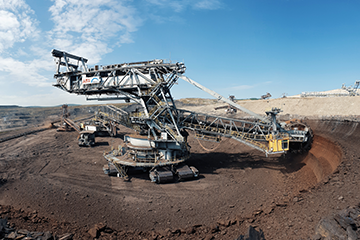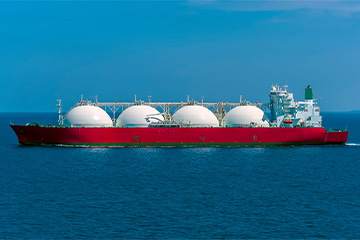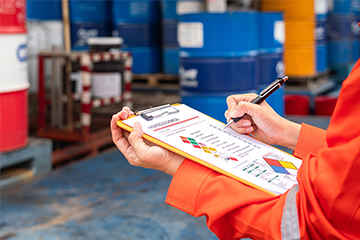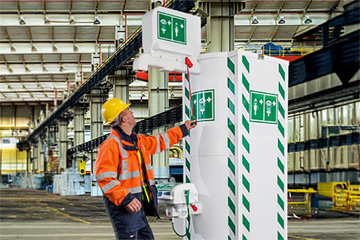Enquiry List () (0)
- Jun 10, 2022
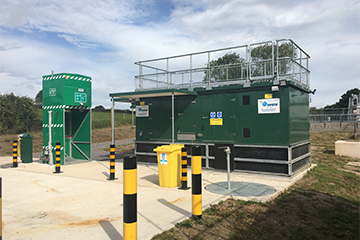
Are you effectively using your safety showers and eye washes
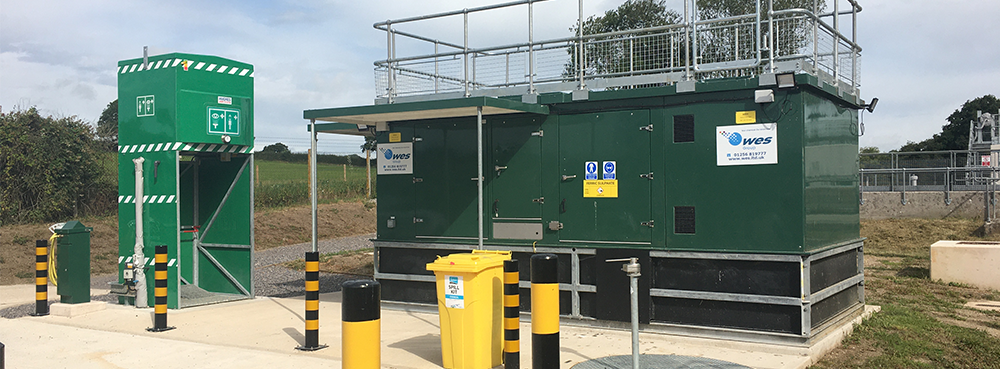
Safety showers and eye washes are designed to be simple to activate in the event of an emergency, going from off to on within a second. Once they have been installed in the correct position, within 10 seconds reach of the hazard with no obstructions as per EN and ANSI standard stipulations, employees must be made aware of their location and how to use them effectively.
The Hughes range of plumbed-in safety showers can deliver 76 litres of water every minute. But how long should a casualty remain under the column of flushing fluid? ANSI and International standards recommend that the safety shower should provide a minimum of 15 minutes continuous water flow, yet it does not specify how long the effected body part should be rinsed to ensure a thorough decontamination.
The hazardous chemicals an employee may be exposed to should be identified when performing a risk assessment prior to purchasing safety shower and eye wash equipment. Once the properties are known, the correct equipment can be selected, and the flushing time adapted. The examples below were taken from the Canadian Centre for Occupational Health and Safety (CCOHS) website:
- 5-minutes for non-irritants or mild irritants
- 15-20 minutes for moderate to severe irritants and chemicals that cause acute toxicity if absorbed through the skin
- 30 minutes for most corrosives, and
- 60 minutes for strong alkalis (e.g., sodium, potassium or calcium hydroxide)
Of course, medical attention should be sought as soon as possible, and the flushing procedure repeated if irritation persists.
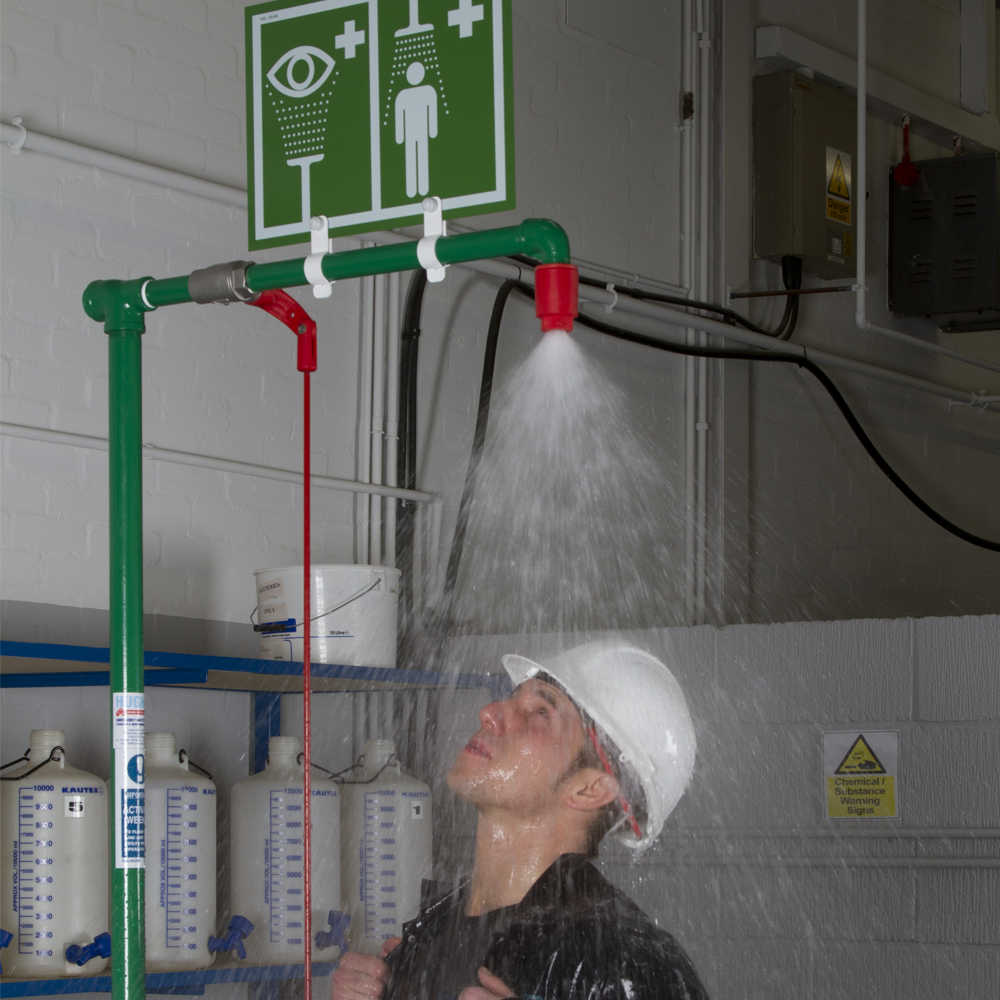 Safety showers are not suitable for treating the eyes and face due to the high flow rate and pressure which could cause damage to this delicate area. Mains fed eye wash stations deliver a controlled flow of 12 litres per minute of aerated water, non-injurious to the eyes. The casualty should:
Safety showers are not suitable for treating the eyes and face due to the high flow rate and pressure which could cause damage to this delicate area. Mains fed eye wash stations deliver a controlled flow of 12 litres per minute of aerated water, non-injurious to the eyes. The casualty should:
- Activate the eye wash. It is essential that employees are trained in how to activate the eye wash on site as methods can differ from one model to another. Watch our useful video of activation types.
- Hold eye lids open using fingers and lower head towards the stream of water
- Flush the area for a minimum of 15 minutes, rolling the eyes around if possible.
- If irritation continues, then repeat the process
- Seek medical assistance
It is imperative that all employees are offered full training and instruction in the proper use and location of emergency showers and eye wash stations, it should never be assumed that workers are aware of the procedures. A hands-on drill is effective to put the learning into practice. The UK Health and Safety Executive stress the need to “be prepared” stating, “you need to plan and practice to cope with foreseeable accidents, incidents or emergencies”. This includes having the right equipment in place, such as PPE and decontamination products, along with the correct procedures and people to take action and deal with a casualty.
Hughes Safety Showers offer an extensive range of showers to suit all environments and industries, from indoor and outdoor drench or combination showers featuring an eye wash and handheld drench hose, to mobile and self-contained models for sites lacking a reliable water supply. To discuss your site requirements, please do not hesitate to contact us.




